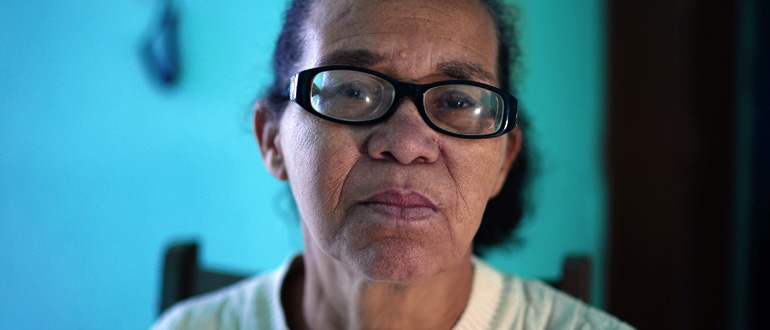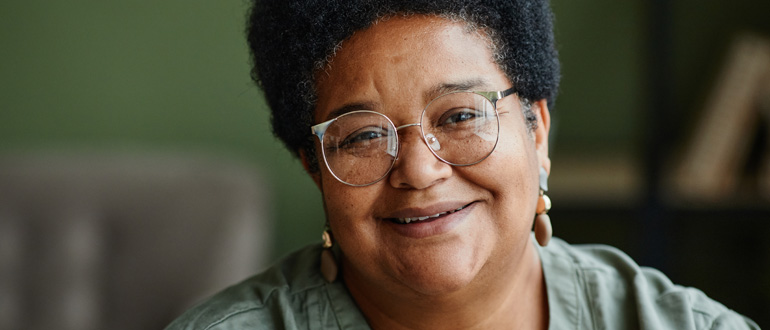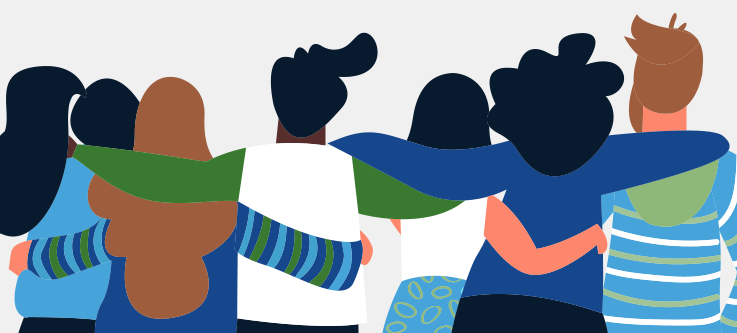Support in Managing Chronic Illness: How CHWs Help

Coping with chronic disease can feel like a part-time job. People with chronic illnesses have to attend more frequent medical appointments, make sure they stay on top of their medication, and even do things like change their diet to manage disease progression.
Doing all of that can take a mental toll. James Stringer, Community Health Worker (CHW) for Mercy Health, understands that well. “Being diagnosed with chronic disease can be mentally challenging,” he says. Part of his role is to offer compassion and be a good listener.
Primary care physicians at Mercy screen for health-related social needs. When the screener shows the patient has health-related social needs, the doctor sends a referral to a CHW. Once James receives a referral, he helps patients come up with a plan to overcome the barriers they’ve identified. “I give them guidance on resources, help them with problems, and navigate the health care and social care systems with them,” he says.
[RELATE: What is a Community Health Worker?]
Newly diagnosed with chronic disease
Many of the people with whom James works are newly diagnosed with chronic illnesses. “You see all kinds,” he says, listing diabetes, heart disease, arthritis, and asthma as common chronic illnesses.
He helps to make sure the participants in his program understand the effects of the disease, and he works with them to form questions to ask doctors. He also sets up schedules for taking medication and offers resources for diet guidance so everyone can make healthy choices.
Those who are newly diagnosed often struggle with making big lifestyle changes, and the shock of the diagnosis contributes to the struggle. James recalls one patient who found out he had a debilitating chronic illness that impacted all areas of his life. Because he was no longer able to work, he got behind on bills.
“He was not in the best headspace,” says James. “He was worried he was going to be in the dark and not have heat.”
James helped this patient by introducing him to various resources that alleviated his mounting challenges. He helped him fill out forms for social services and disability and catch up on bills. Eventually, he was able to reach stability. “It took some months, and there were tears. But now he’s doing well.”
A wide range of patients
Types of chronic illness vary widely. And people respond to chronic illness very differently than one another, too. James says he deals with patients with chronic illness on a case-by-case basis.
“I work with patients that range from 18 to over 100 years of age. They might be good at managing their disease, doing it for years.” They might need help with just one issue or be experiencing multiple challenges.
He stays flexible and connected and lets his clients know they can always reach out to him, even if they’re no longer meeting regularly. “I might talk to them regularly for 3-4 months, and then not hear from them again until 3 months later. Sometimes they get off track and just need help getting back,” James says.
He emphasizes that patience is key in his interactions with clients. “They’re in a situation where they’re not in the best mental space because of chronic disease and social barriers. I let them know I’m here for them, and we’ll figure it out. It might not be easy, but we’re going to work toward it.”
Make a real difference! Get certified as a Community Health Worker and coordinate care for people who face barriers to good health outcomes.






